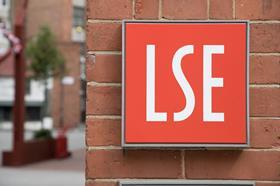Catalyst for team led by professor Anne Power was Home Group’s Rayners Lane estate regeneration

A new framework could revolutionise the way housing regeneration schemes deliver value for residents beyond simply replacing old assets with new buildings.
Developed by a team led by professor Anne Power of the London School of Economics (LSE), one of the country’s leading academics with an interest in housing and communities, the framework is aimed at improving social and environmental regeneration, as well as physical improvements.
The 81-page document was triggered by an evaluation of the work done by Home Group at its Rayners Lane estate in north west London three years ago, which Power said was “an invaluable model of how to restore estates”.
The LSE found that for every £1 it ploughed into the estate, Home Group generated around 12 times that in social value, including on-site housing support, giving residents a voice, supporting employment, skills and financial inclusion and promoting health and wellbeing.
According to Power, the housing association, which operates 55,000 homes across England from the South Coast to the North-east, had developed a successful regeneration model “where almost the entire community is retained and rehoused on site, where estate-based management is in place, community facilities and open spaces are built into the design and where a ‘neighbourhood planning’ approach is the guiding principle.
“This holistic approach to estate upgrading brings together physical, financial, management, social and environmental investments to make neighbourhoods work. It allows for placemaking, creates a sense of wellbeing and community, potentially improving health, skills and employment, and crucially, neighbour relations.”
Power said a key part of the framework was to base future plans on current neighbourhood conditions, performance, barriers to success and potential.
“The framework we’ve developed draws on research evidence from Rayners Lane and international case studies,” she added.
Maggie Gjessing, Home’s regeneration director, said that by applying this framework and tracking social, environmental and economic wellbeing throughout the regeneration, her organisation could identify areas for improvement and form partnerships and develop strategies to target a range of challenges.
“The framework developed by professor Power and her team is now an integral part of our regeneration planning, process and outcomes [and] can be adapted to suit by any housing association and for any size of regeneration across the UK,” Gjessing added.
New framework
The LSE said it had developed a basic framework for assessing conditions in areas of social housing. Its proposals covered two approaches to measuring the social value of regeneration and renewal: a basic framework to assess the conditions, problems and possible remedies for estate decline and need for renewal, and a detailed ”social return on investment” framework, including improving the external environment and layout of neighbourhoods.
It would take account of rapidly evolving conditions such as:
• Changes in housing market conditions
• The challenge in London of tenant ballots, which will have potentially far-reaching effects on how landlords consult with and involve tenants in decisions about the future of their homes
• A more favourable government approach to social housing
• Increased investment in existing homes following the Grenfell fire tragedy
• Greater environmental awareness and the urgency of action
• The costs of substantive regeneration without significant subsidy
• Customer aspirations around choice and the importance of listening to tenants
• Placemaking as a core principle.










No comments yet